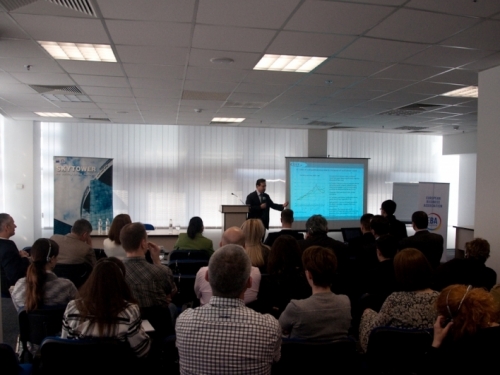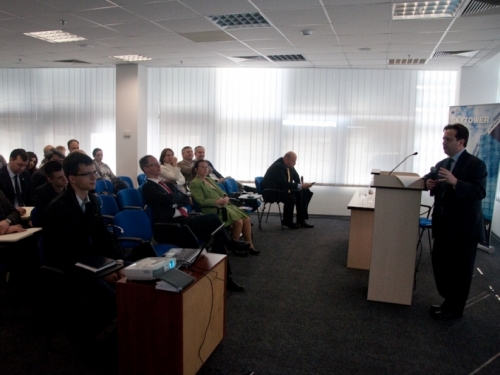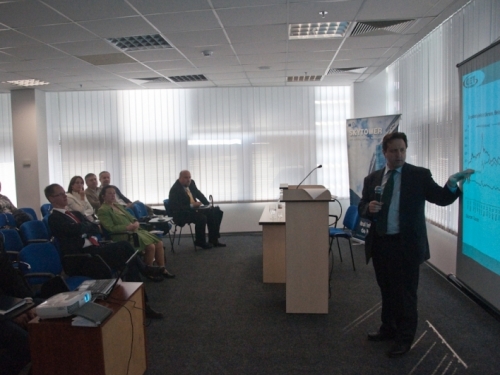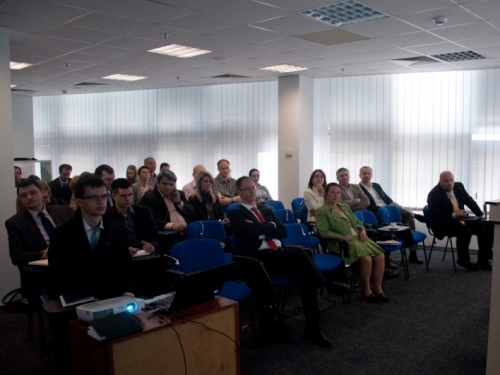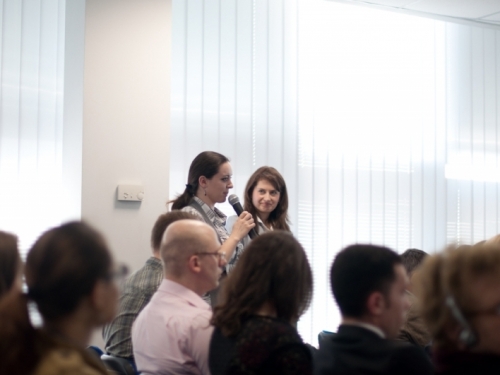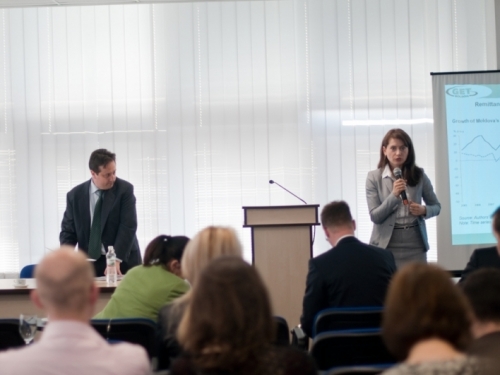As the Cyprus events have brought the euro-crisis back into the headlines, there is much uncertainty among Moldova’s policy makers and businesses alike how this has and will affect the Moldovan economy. To inform the debate the German Economic Team (GET) Moldova has carried out research on the ‘Economic Impact of the Eurozone-Crisis on Moldova’.
The German economists find that the impact is substantial. Especially reduced demand for Moldova’s exports and less money send back from Moldovans working in the Euro-Area have dented economic growth in the Republic of Moldova. Additionally, European investors have become less willing to invest in Moldova.
However, uncertainty and a loss of confidence mean that businesses may overestimate the effects of the crisis. As such GET Moldova and the EBA will conduct a joint presentation event on the 24th of April at 16.30 to inform about the causes, impact and outlook of the euro-crisis.
Dr. Ricardo Giucci, Leader of the German Economic Team Moldova, comments:
“Economic growth in the Eurozone will be low in the short-term, meaning that exports and remittances will only recover in the medium-term. Policy makers need to pay close attention to the current events and think about possible policy responses. The German Economic Team stands ready to support them in this task.“
George Teodorescu, “Vernon David” Managing Attorney, EBA Founder, adds:
“While one cannot change the economic effect of the euro crisis as such, companies who understand how the euro-crisis may affect them will be much better able to mitigate the current impact on their business and be prepared to take full advantage of the rebound when the situation improves. As such, we are happy to facilitate this kind of events which we anticipate will help the investor community make better business decisions.”
About the German Economic Team Moldova (GET)
The German Economic Team Moldova (GET Moldova) advises the Moldovan government and other Moldovan state authorities such as the National Bank on a wide range of economic policy issues. Our analytical work is presented and discussed during regular meetings with high-level decision makers. GET Moldova is financed by the German Federal Ministry of Economics and Technology under the TRANSFORM programme and its successor. Our publications are publicly available on our website (www.get-moldova.de).
About the European Business Association (EBA)
European Business Association of Moldova was founded in 2011 by ten of the biggest investors in the Republic of Moldova and is aimed at improving the business environment of Moldova through lobbying and advocacy activities and business support services. At the moment more than 40 local and international companies are members of the EBA. (www.eba.md)

